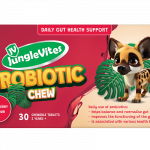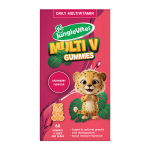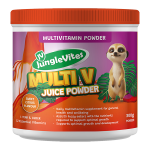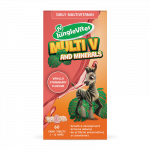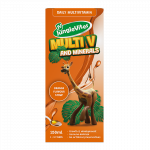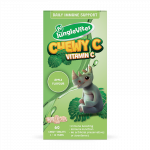As parents, we’re constantly striving to keep our little ones happy and healthy. But let’s face it, kids are germ magnets! From playground adventures to crowded classrooms, they’re exposed to a constant barrage of bugs. That’s why building a strong immune system is crucial for their well-being. So, how can we help our kids become immune-boosting superheroes? Let’s dive in!
The Mighty Immune System: A Kid’s Best Friend
Imagine your child’s immune system as a sophisticated army, constantly working to defend against invaders like bacteria and viruses. This complex network of cells, tissues, and organs is essential for keeping them healthy. A strong immune system means fewer sick days, more energy for play, and a happier, more vibrant child.
Key Strategies for Boosting Immunity:
Nutrient-Rich Diet: Fueling the Fortress:
- A balanced diet is the cornerstone of a healthy immune system. Focus on:
- Fruits and Vegetables: Packed with vitamins and antioxidants, these are essential for immune function. Encourage a rainbow of colors!
- Protein: Lean protein sources like chicken, fish, beans, and lentils provide the building blocks for immune cells.
- Whole Grains: Provide sustained energy and fiber, supporting overall health.
- Probiotics: Yogurt with live cultures can promote gut health, which plays a vital role in immunity.
- Limit processed foods, sugary drinks, and excessive unhealthy fats.
- Reference: Maggini, S., Pierre, A., & Calder, P. C. (2018). Immune Function and Micronutrient Requirements During Normal Aging. Immunity & Ageing, 15(1), 1.
- A balanced diet is the cornerstone of a healthy immune system. Focus on:
Sleep: The Immune System’s Recharge Button:
- Adequate sleep is crucial for immune function. During sleep, the body repairs and regenerates, strengthening its defenses.
- Ensure your child gets the recommended amount of sleep for their age:
- Toddlers (1-3 years): 11-14 hours
- Preschoolers (3-5 years): 10-13 hours
- School-aged children (6-13 years): 9-11 hours
- Reference: Besedovsky, L., Lange, T., & Born, J. (2012). Sleep and immune function. Pflügers Archiv-European Journal of Physiology, 463(1), 121-137.1
Hygiene Habits: Keeping Germs at Bay:
- Teach your child the importance of good hygiene practices:
- Handwashing: Frequent handwashing with soap and water is the most effective way to prevent the spread of germs.
- Covering Coughs and Sneezes: Teach them to cover their mouth and nose with a tissue or their elbow.
- Avoid Touching Face: Discourage them from touching their eyes, nose, and mouth.
- Reference: World Health Organization. (2020). Hand hygiene: why, how & when?
- Teach your child the importance of good hygiene practices:
Regular Exercise: Moving for Immunity:
- Physical activity boosts circulation, allowing immune cells to travel more efficiently throughout the body.
- Encourage at least 60 minutes of moderate-intensity exercise daily.
- Make it fun! Play outside, go for walks, or try age-appropriate sports.
- Reference: Nieman, D. C., & Wentz, L. M. (2019). The compelling link between physical activity and the body’s defense system. Journal of Sport and Health Science, 8(3),2 201-217.
Stress Management: Keeping Calm and Healthy:
- Chronic stress can weaken the immune system.
- Help your child manage stress through:
- Adequate rest and relaxation.
- Playtime and creative activities.
- Open communication and emotional support.
- Reference: Segerstrom, S. C., & Miller, G. E. (2004). Psychological stress and the human immune system: a meta-analytic study of 30 years of inquiry. Psychological3 Bulletin, 130(4), 601.
Vaccinations: Building a Strong Defense Line:
- Vaccinations are a safe and effective way to protect your child from serious illnesses.
- Follow the recommended vaccination schedule from your pediatrician.
- Reference: Centers for Disease Control and Prevention. (2023). Recommended Immunization Schedule for Children and Adolescents Aged 18 Years or Younger, United States, 2023.
Vitamin D: The Sunshine Vitamin:
- Vitamin D plays a very important role in immune function.
- Many children are deficient in Vitamin D.
- Talk to your pediatrician about Vitamin D supplementation.
- Reference: Aranow, C. (2011). Vitamin D and the immune system. Journal of Investigative Medicine, 59(6), 881-886.
Limit Exposure to Secondhand Smoke:
- Second hand smoke weakens the immune system, and increases the likelyhood of respiratory infections.
- Reference: U.S. Department of Health and Human Services. (2014). The Health Consequences of Smoking—50 Years of Progress: A Report of the Surgeon General.4 Atlanta, GA: U.S. Department of Health and Human Services, Centers for Disease Control and Prevention, National Center for Chronic Disease5 Prevention and Health Promotion, Office on Smoking and Health.6
When to Seek Professional Advice:
While these tips can significantly boost your child’s immunity, it’s essential to consult with your pediatrician if you have concerns about their health. They can provide personalized advice and address any underlying medical conditions.
Building a Strong Foundation:
Building a robust immune system is an ongoing process. By incorporating these strategies into your child’s daily life, you’re giving them the tools they need to stay healthy and thrive. Remember, a healthy child is a happy child!

